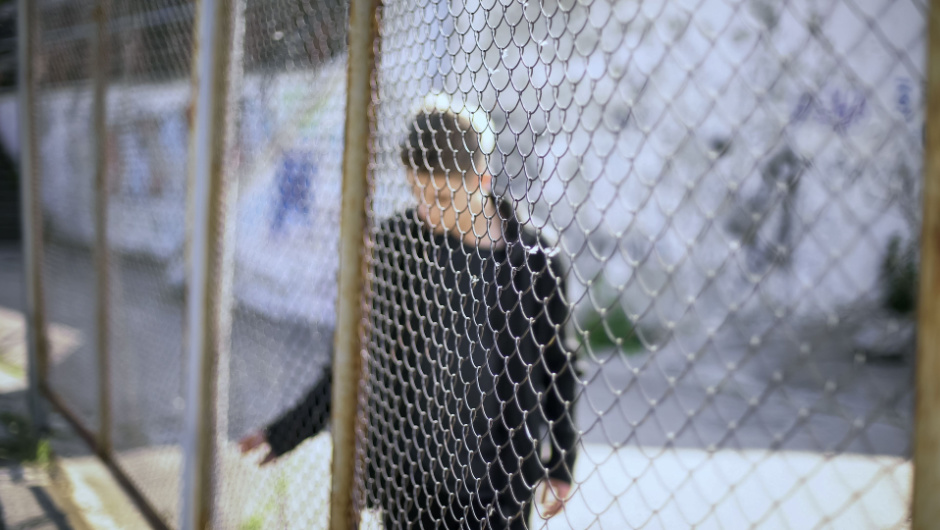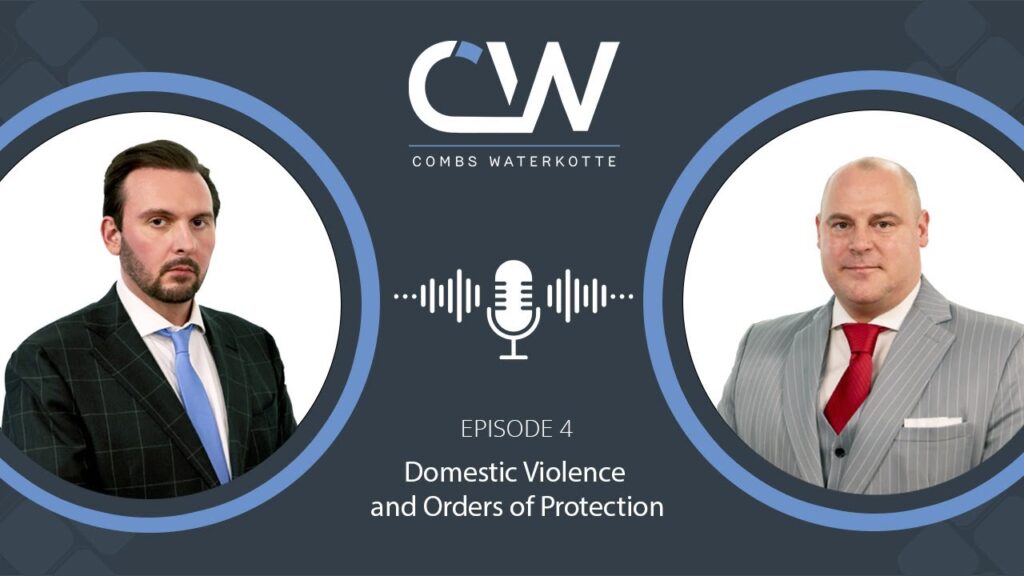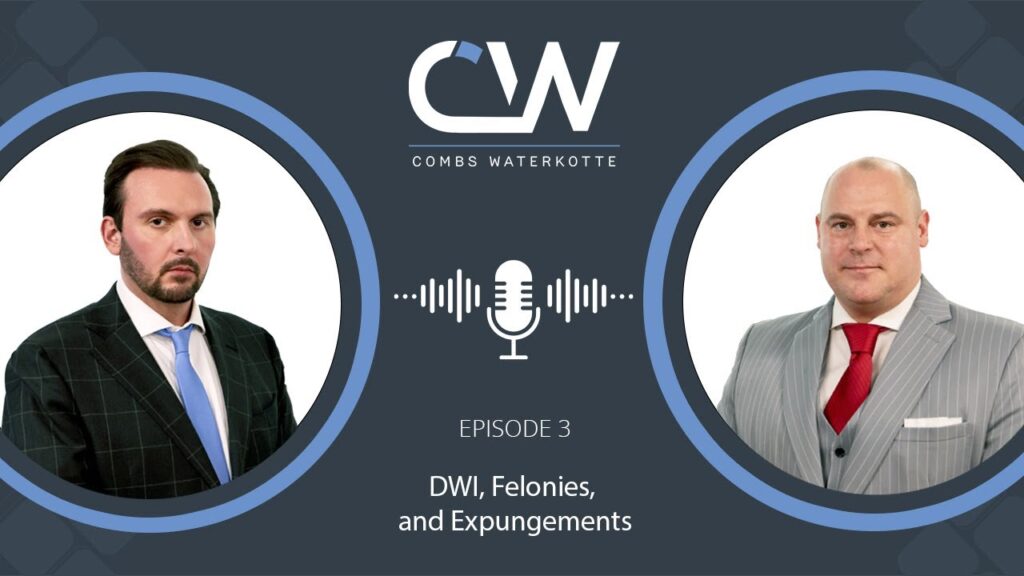
Juvenile Crimes Lawyer in St. Louis
Call a Juvenile Crimes Defense Attorney
Last Updated: January 22, 2024
This content has been written and edited by professional legal writers and individually reviewed and verified by Christopher Combs and Steven Waterkotte, attorneys who have over 40 combined years in the criminal defense industry.
Juvenile Crimes Lawyer in St Louis:
Fighting For Rehabilitation
Combs Waterkotte is the leading criminal defense and traffic firm serving St. Louis and the entire state of Missouri. Our criminal defense attorneys will fight for your freedom, your rights, and will not give up until you get fair justice. Our exceptional record and over 250 reviews speaks for itself.
Juvenile Crimes Lawyer in St. Louis
Being a young person in this day and age is not always the easiest thing. The current social environment for minors is radically different compared to even ten or fifteen years ago, with the widespread adoption of smartphones and social media permanently altering how teenagers communicate, hang out with others, and generally live their lives. Statistics have shown that teenagers of today have higher levels of depression and anxiety. They are also facing more expectations and dealing with more stress and environmental factors than previous generations of youths.
You don't have to go through this alone. Contact one of our juvenile crimes defense lawyers today at (314) 900-HELP to protect your freedom.
Unfortunately, these factors all come into play whenever teenagers find themselves in trouble with the law. Once a child enters the juvenile justice system, it's quite difficult to get them back onto the straight and narrow and out of that system. At Combs Waterkotte, we understand that in some circumstances good kids just get caught up in bad situations that they have no control over. We are a reputable and knowledgeable criminal defense law firm that has experience with St. Louis and Missouri laws and how they relate to minors.
In the Missouri Juvenile Justice system there are a lot of phrases that are different from criminal court. Instead of being "arrested" a youth is "taken into custody," they are issued a "summons," rather than a “warrant,” they have a "hearing" instead of a "trial," they are "placed" instead of "imprisoned," and they receive "aftercare/supervision" instead of "parole."
In 2012, the Missouri State Senate Judiciary Committee passed what's called "Jonathan's Law." The law requires judges to consider giving juveniles convicted as adults a juvenile sentence, and requires an explanation if they do not.
Law enforcement must make every reasonable effort to contact a parent or guardian. If they wish to waive the right to an attorney or to have a parent or guardian present, a parent or guardian has the right to discuss it with them first. A minor may only be held for up to 24 hours, excluding weekends and legal holidays, unless the court orders a longer detention. Similar to a criminal trial, a juvenile has a right to a lawyer at an adjudicatory hearing and does not have to testify.
When Can a Juvenile Be Tried as An Adult?
A juvenile between the ages of 12 and 17 can be tried as an adult if they are charged with any crime that would be a felony if committed by an adult. The court can generally do so without a hearing, however some charges require a hearing before moving to criminal court:
- Murder/Homicide
- First-degree assault
- Rape
- Drug trafficking
- First-degree robbery
- If they have already been adjudicated on two felonies
At Combs Waterkotte, we believe one of our St. Louis juvenile crimes lawyers' chief responsibilities is working to ensure your child is not tried as an adult.


Understanding Juvenile Crimes and Laws in St. Louis and Missouri
In the state of Missouri, anyone under the age of 18 at the time of arrest is considered a juvenile under the law. Juvenile cases are subject to a slightly different code of judicial practice than cases involving adults, which you can review here. In many cases, whenever anyone under the age of 18 commits a crime, it will be handled in a Missouri juvenile court. This is regardless of whether the crime is a felony or a
misdemeanor.
Juvenile crimes in Missouri also are broken down into two categories: delinquent acts and status offenses. Delinquent acts are acts that would be considered a crime if they were committed by an adult, such as theft or assault. Status offenses, however, are laws that only apply to juveniles.
What are status offenses in Missouri?:
- Truancy
- Being an incorrigible child
- Running away from home
- Behavior or associations that are seen as “injurious to the welfare of the child”
When can a juvenile be tried in adult court in Missouri?:
- Traffic offenses
- Local ordinance violation (noise ordinance, shoplifting)
- A particularly serious offense (murder, rape)
- Past rehabilitation efforts have been unsuccessful


What’s the Difference Between the Adult and Juvenile Courts in St. Louis and Missouri?
In an adult criminal court, a person who is found guilty receives a criminal conviction and a proportionate sentence or punishment. The punishment can be anything from a fine, and/or probation or incarceration. Typically, a criminal conviction is meant to punish the offender, offer the victim and the community a sense of justice, and deter others from committing similar crimes.
The goal is much different in juvenile courts. A juvenile doesn’t receive a conviction, but rather what’s called a “juvenile adjudication.” This means the court does not consider the youth to be guilty of a crime but is giving a “determination of status.” The main goal is, instead of punishment, to educate the youth, rehabilitate them, and encourage them to find ways to make better choices.


What Are Parents’ and Children’s Rights in Juvenile Courts?
Juvenile’s have the same rights when taken into custody as adults do in Missouri, except the right to a trial by jury. Namely:
- The right to remain silent
- The right to an attorney, who will be provided by the court if the parents cannot afford one
- Whatever they say to a Juvenile Officer may be used against them in their court proceedings
- Any statements made to law enforcement may be used later if they are prosecuted in adult criminal court
- The right to have a parent or guardian present during questioning
- The right to stop talking and have questioning stopped at any point


What Happens in Juvenile Court?
There are two parts to addressing the juvenile petition, which is similar to a criminal complaint or charge in adult court:
- Adjudicatory hearing — This is similar to a trial in criminal court. Through witnesses, direct and cross-examination and other evidence, the judge will determine if the charges in the petition are true. The main difference between an adjudicatory hearing and a criminal trial is that a judge, not a jury, decides the facts of the case.
- Dispositional hearing — If the judge determines the allegations are true, the case will proceed to the dispositional hearing, which is akin to sentencing. Here the court will decide how they want to treat and rehabilitate the juvenile.


What Are the Possible Punishments for Juvenile Crimes?
Under Missouri Revised Statute §211.083, a judge may issue an “informal adjustment,” which essentially warns the youth not to commit any more delinquent acts or status offenses. In such a ruling, the judge may order restitution for any damage caused and/or community service.


What Happens When a Juvenile is Adjudicated in Missouri?
If the youth is adjudicated, the penalties in St. Louis and Missouri are laid out in RSMo §211.181:
- Mandatory counseling
- Placement in a juvenile detention facility or home
- Suspension or revocation of driver’s license
- Aftercare or supervision
- Mandatory attendance of a diversionary program
- Restitution or fines
- Community service
- Registration as a juvenile sex offender until 21 years of age, under RSMo §211.425


Contact An Experienced St. Louis, MO Juvenile Crimes Lawyer Today
We will treat your family with warmth and compassion, and our main goal will always be to minimize the consequences for your family and your child. Combs Waterkotte understands that juvenile court cases are often a stressful and worrying time for both the defendant and their family. Regardless of the offense you or your child is accused of is a delinquent act or a status offense, our firm has the dedication and expertise needed to ensure a positive outcome for your case.






































